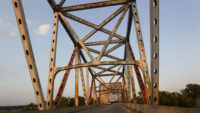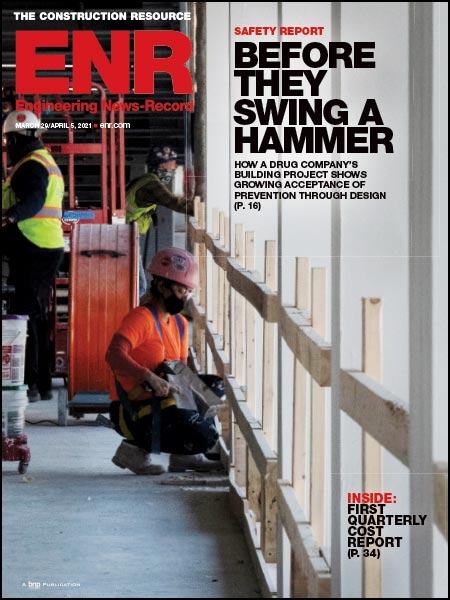
Voters struck down assisted suicide in Maine and medical use of marijuana in Arkansas, among other ballot initiatives on Nov. 6, but they approved most state and local measures that would fund billions in current and future infrastructure construction.
Analysts say about 75% of statewide bond referendums totaling about $3.2 billion were approved, as well as almost $36 billion in local measures, most for education infrastructure, but including other sectors as well.
The American Road & Transportation Builders Association says 68% of the measures to increase or extend funding for highways, bridges and transit on state and local ballots passed, totaling about $2.4 billion.
Voters 'Willing to Pay'
ARTBA tracked 31 measures overall—five statewide initiatives and 26 local. Those approved include 18 municipal measures to increase, extend or renew a sales tax for transportation purposes. Three of the four statewide measures to raise additional transportation funds passed with an average approval rate of 63%, says ARTBA Chief Economist Alison Premo Black.
“The results show the American people are looking for solutions to address their transportation challenges and are willing to pay more if they know the revenue generated will be used for its intended purpose,” she says.
One of the largest funding initiatives approved was the $1.3-billion measure in Arkansas for roads and highways. Voters approved a temporary 0.5% increase in the state sales tax to generate that amount over the next 10 years. The vote was 58% to 42%
The sales tax increase, from 6% to 6.5%, takes effect next July 1, and the state will start awarding contracts for the work next fall, says David Nilles, Arkansas State Highway and Transportation Dept. spokesman.
Those funds will be added to about $500 million in existing bond revenues for state highway projects, with which the state will begin letting contracts on Nov. 28, officials say.
With polls taken last summer showing that nearly 50% of voters did not support the tax increase, proponents launched a media campaign in early October to counter opposition.
Alaska voters approved a $453.5-million transportation measure, with a 57% pass rate. According to published reports in the state, a port expansion project in Anchorage that has suffered cost overruns and unspecified "construction problems" is set to receive $50 million from the bond package.
But the state is set to release a report today on whether the expansion project can be built as designed. The port handles 90% of goods arriving in Alaska.
Among local transportation bond measures passed were a $32-million item in Arlington County, Va. for Metrorail; a half-cent sales tax increase in Orange County, N.C., set to raise $661 million over 30 years; and a non-binding referendum supporting light-rail expansion in Virginia Beach, Va.
The National Rail Construction and Maintenance Association (NRC) was optimistic that the defeat of "anti-rail" former Hawaii Gov. Ben Cayetano in the Honolulu mayoral race would aid the city's $5-billion elevated light rail project. Cayetano, who lost to project supporter Kirk Caldwell, had vowed to kill the project if elected, says NRC President Chuck Baker.
Michigan Crossing Measure Defeated
Michigan voters roundly defeated a controversial measure that would have required their approval to build international bridges and tunnel crossings. Had it passed, Proposal 6 could have jeopardized plans by Michigan to construct a second bridge between Detroit and Windsor, Ontario.
Despite heavy spending in support of the proposal by billionaire Manuel “Marty” Maroun, owner of a toll bridge linking the two cities, voters rejected it by a margin of nearly two to one.
“It's a great win for Michigan,” says Ken Silfven, spokesman for Michigan Gov. Rick Snyder. “Voters made it clear they want to move forward and create jobs, and a second span between Detroit and Canada is very much a part of that.”
A nonprofit organization funded by Maroun's Detroit International Bridge Co. Holdings, had alleged that taxpayers would pay for Michigan's share of costs for a second span.
“That isn't the case,” says Silven, “and voters saw through it.”
In June, Snyder and Canadian officials reached an agreement calling for Canada to fund Michigan's $550-million share of bridge costs, then recoup its investment from bridge tolls. Snyder estimates the $3.5-billion project will create 10,000 construction jobs. Officials have not yet estimated a date for groundbreaking, although the bridge was set for completion in 2016.
However, somel transportation finance measures were unsuccessful, according to ARTBA.
Measure J in Los Angeles, favored by Mayor Antonio Villaraigosa to accelerate rail transit construction by extending a one-half-cent sales tax passed in 2008 for an additional 30 years, narrowly lost. The initiative needed a 66% super majority for approval; it got 65%.
Voters in Cornelius, Ore., also rejected a measure to repeal the local fuel tax, which is used to improve roads.






Post a comment to this article
Report Abusive Comment